Gardening brings all sorts of joys to our lives, but let’s be real–it also comes with frustrating pests. Mosquitoes are the worst, but you’ll often find ants, fleas, ticks, slugs, and other insects munching away at your hard work. Thankfully, though, there are some flowers that you can plant around your yard to keep these pests away–here are some of our top recommendations.
Marigolds
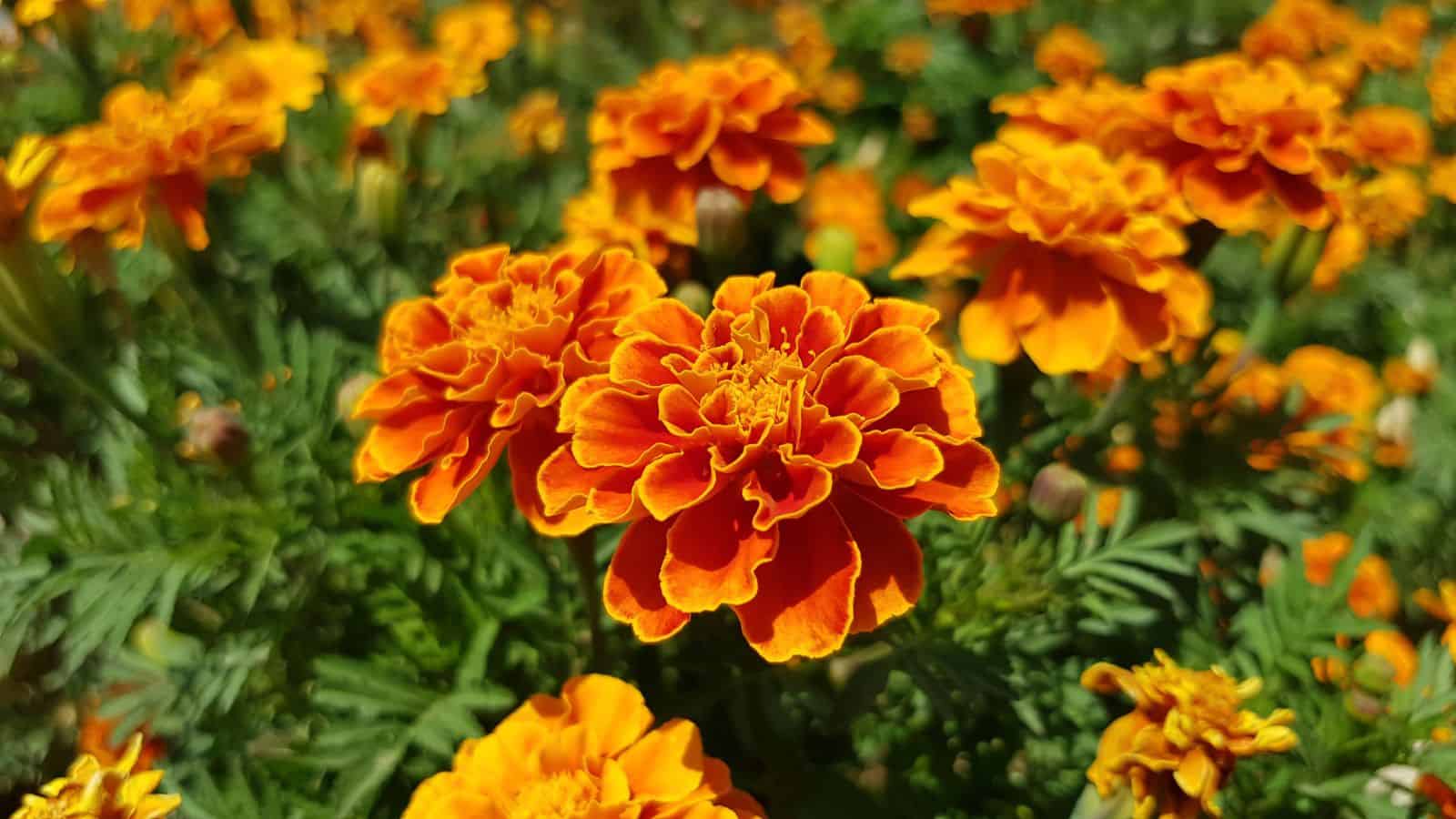
First on our list of flowers that will keep mosquitoes and other bugs away is marigolds. These glorious flowers aren’t just pretty—they’re powerhouse pest repellents. With the addition of pyrethrum, a compound often found in commercial bug sprays, marigolds can deter mosquitoes and other garden pests like aphids. Place them around entry points or outdoor seating to enjoy bug-free blooms and that classic marigold charm.
Lavender

The soft purple flowers of lavender are another solid option, as the plant’s essential oils naturally repel mosquitoes. Best of all, if you plant them close to seating areas, they’ll not just repel these bugs, but they’ll also provide a calming lavender scent. They’re relatively hardy, too, so simply plant them in sunny spots and rocky soil, and your lavender will make for both a functional and beautiful garden addition.
Petunias
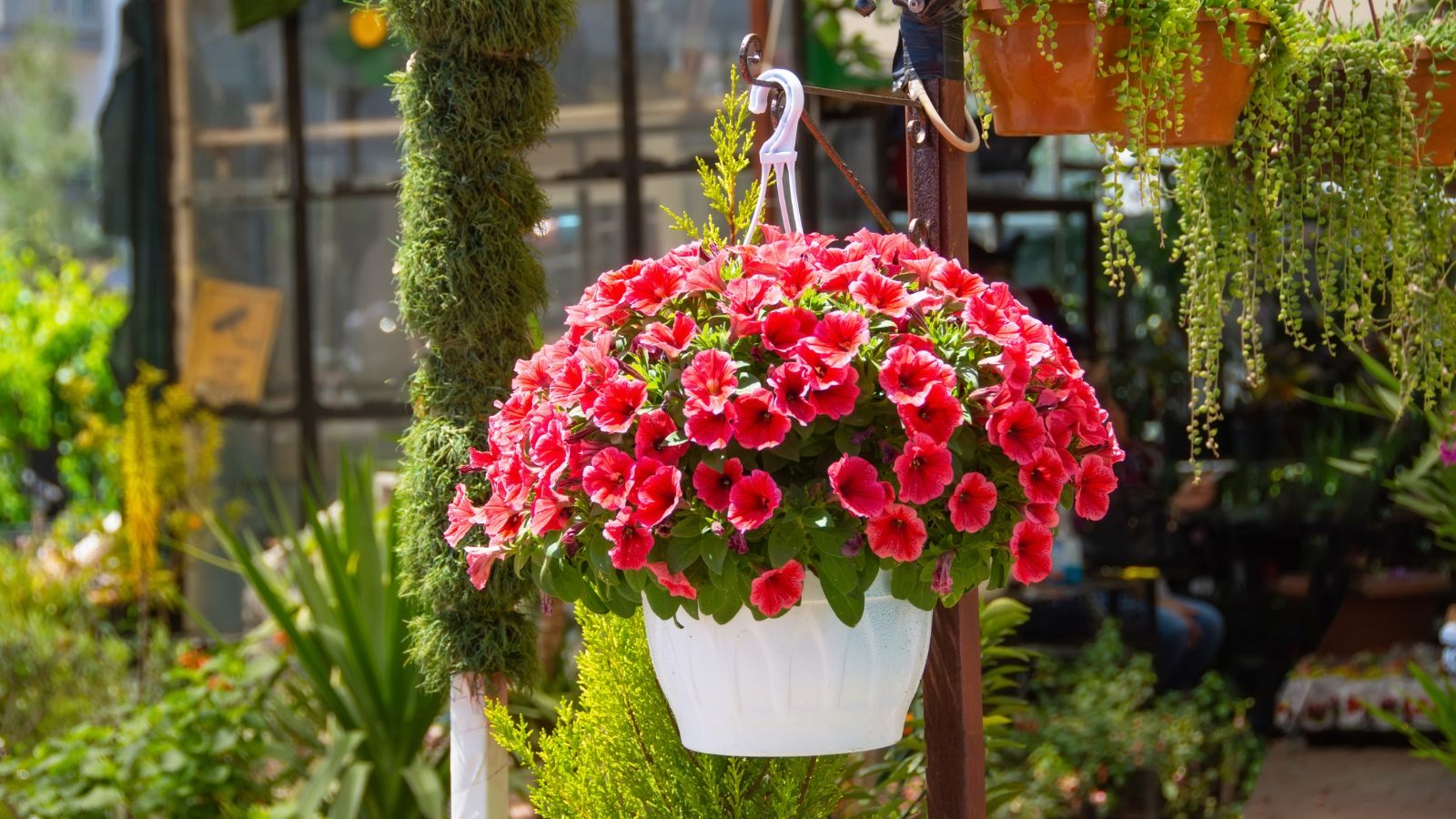
If you’re looking to add some vibrant color to your garden while repelling some common pests like aphids and tomato hornworms, you can’t beat petunias. Annoyingly, they’re not particularly effective against mosquitoes, but they’ll certainly repel aphids, hornworms, squash bugs, and more. So, they work best in combination with a different mosquito-repelling flower, ensuring that you’ve got an entire insect deterrent arsenal at your disposal.
Chrysanthemums
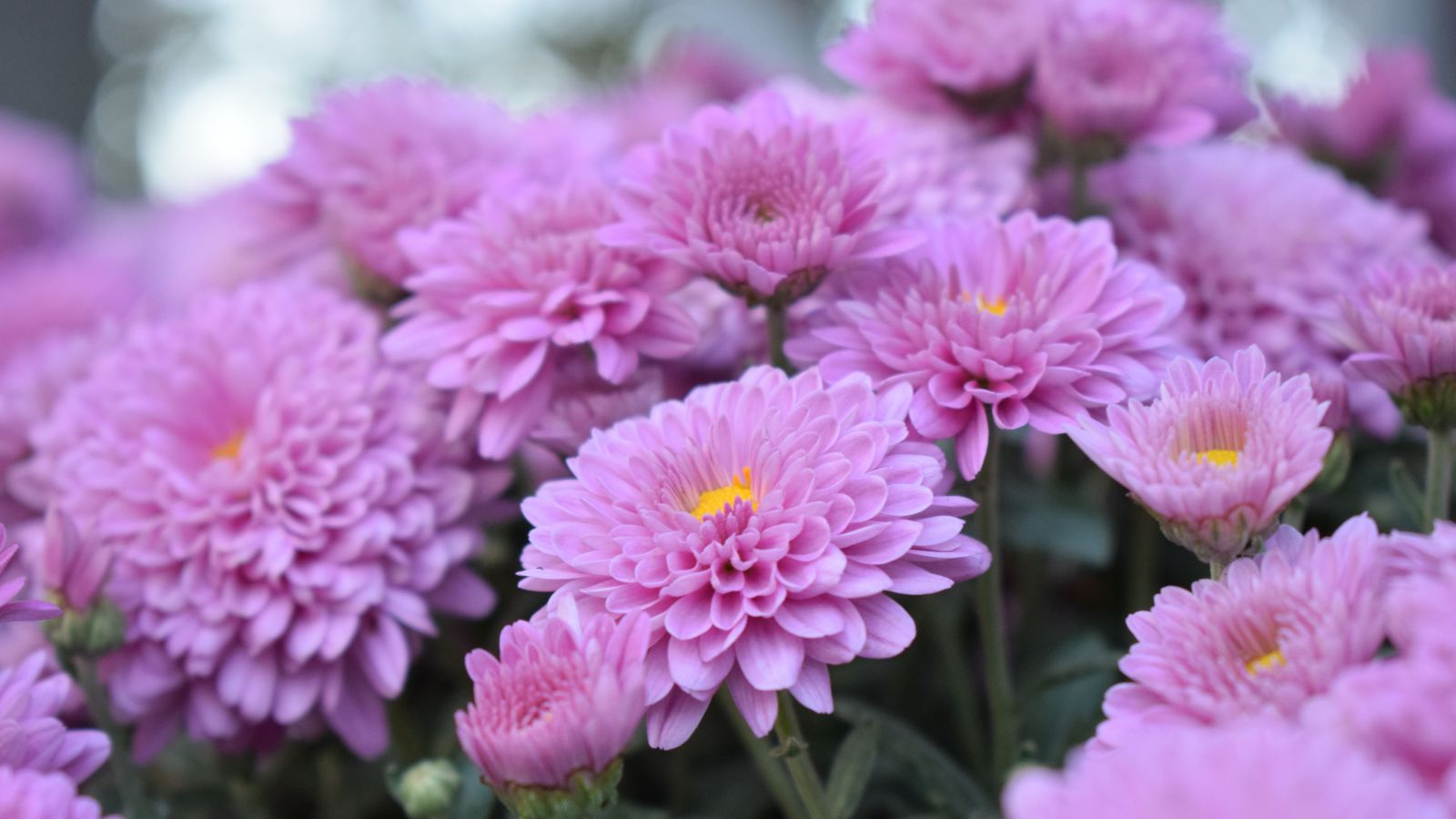
Chrysanthemums are renowned for their insect-fighting abilities as they contain pyrethrins, which act as a natural insecticide that is effective against ants, fleas, ticks, and other bugs. Their striking blooms bring late-season color to garden beds, making them as aesthetically pleasing as they are decorative.
Nasturtiums
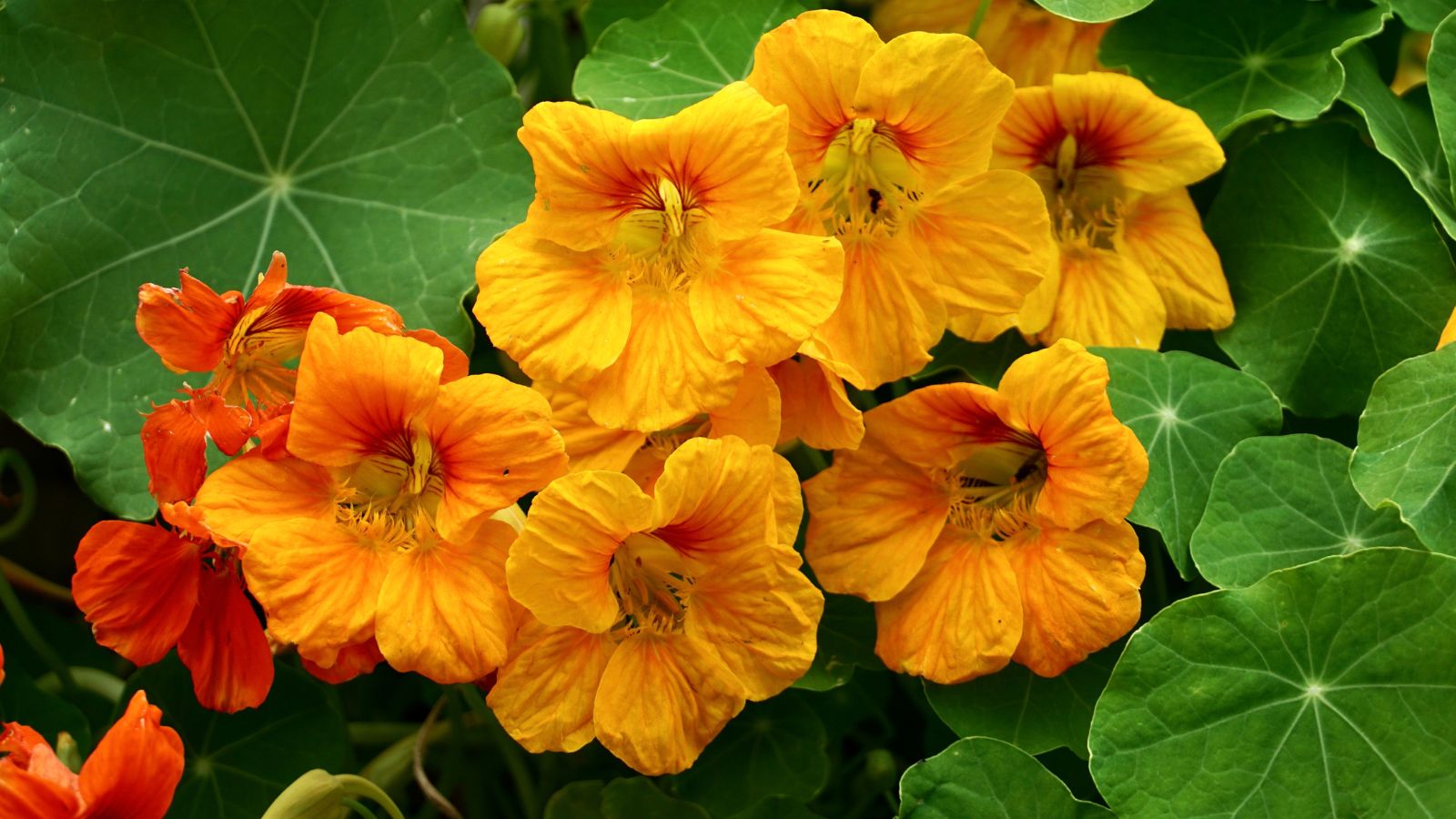
Nasturtiums serve as a “trap crop,” attracting aphids and diverting them from other plants. They won’t get rid of mosquitos, but place them next to a flower that does, and you’ll have pretty good insect-repellent coverage. More importantly, their bright, cheery blooms look beautiful and are great for companion planting, adding both color and some natural pest control to vegetable gardens.
Citronella
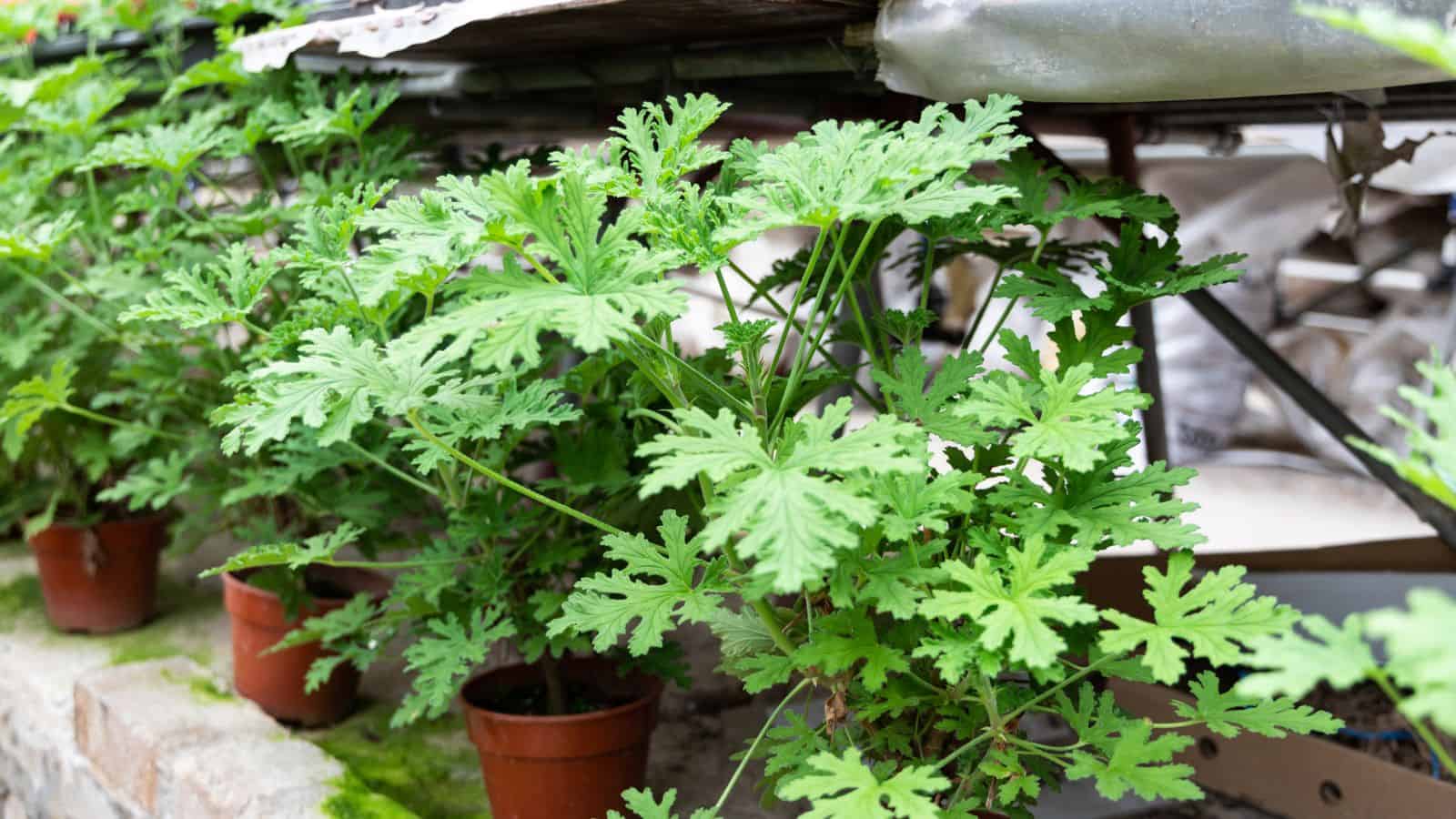
To get rid of those annoying mosquitoes, try planting some citronella plants, which also bring a delightful lemony scent. Despite it smelling so good, mosquitoes hate this smell, so it should be pretty effective. You’ve probably seen this used in candle form, but the live plant is even better at keeping bugs away. Trust us–you’ll be glad you planted it when you finally get to enjoy a mosquito-free barbeque in your yard.
Alliums
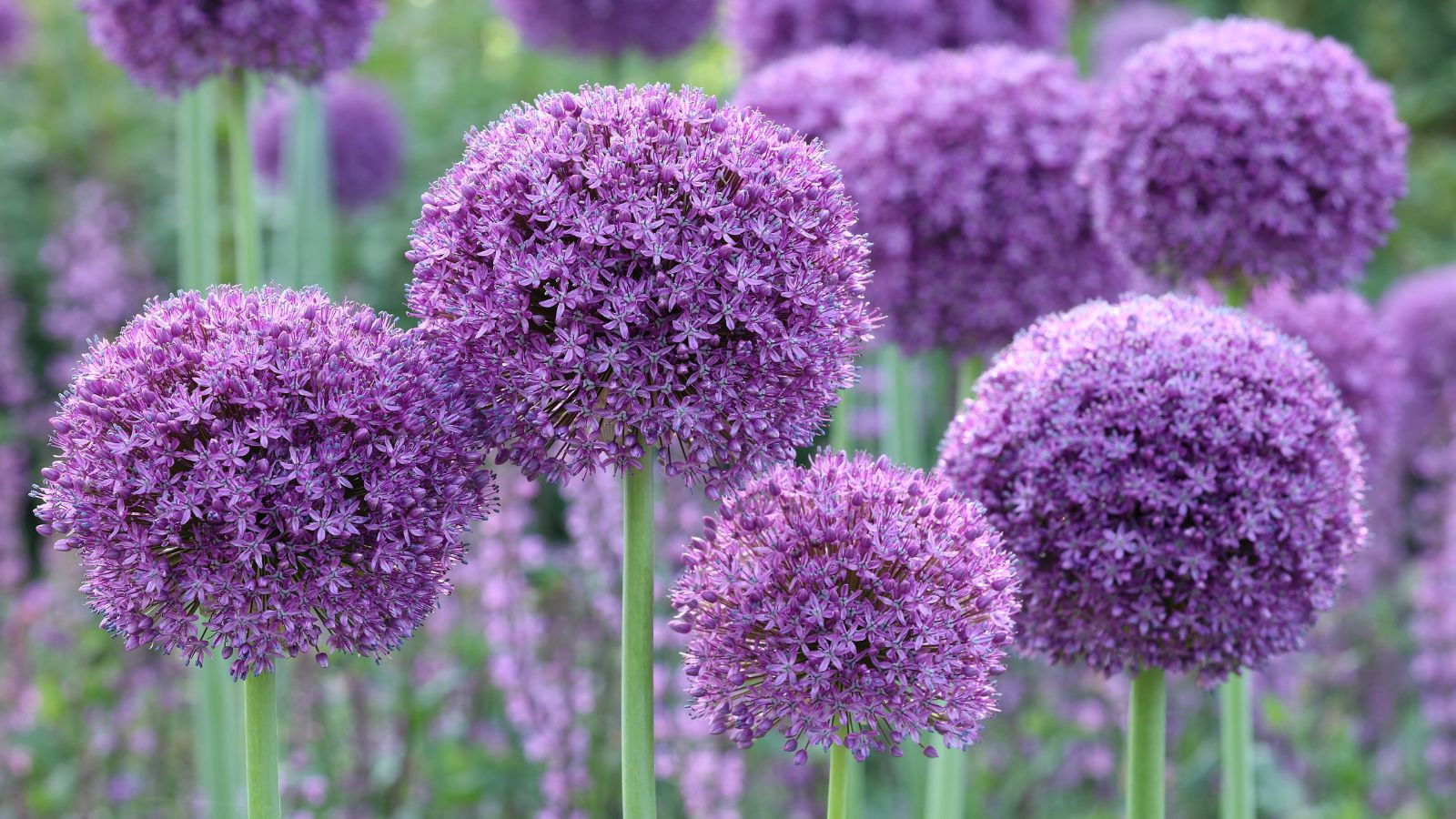
Relatives of onions and garlic, alliums are unique additions to the garden that help ward off aphids and carrot flies. Their tall, spherical blooms bring a touch of elegance, doubling as a decorative and pest-deterring plant in vegetable patches or flower beds.
Catnip
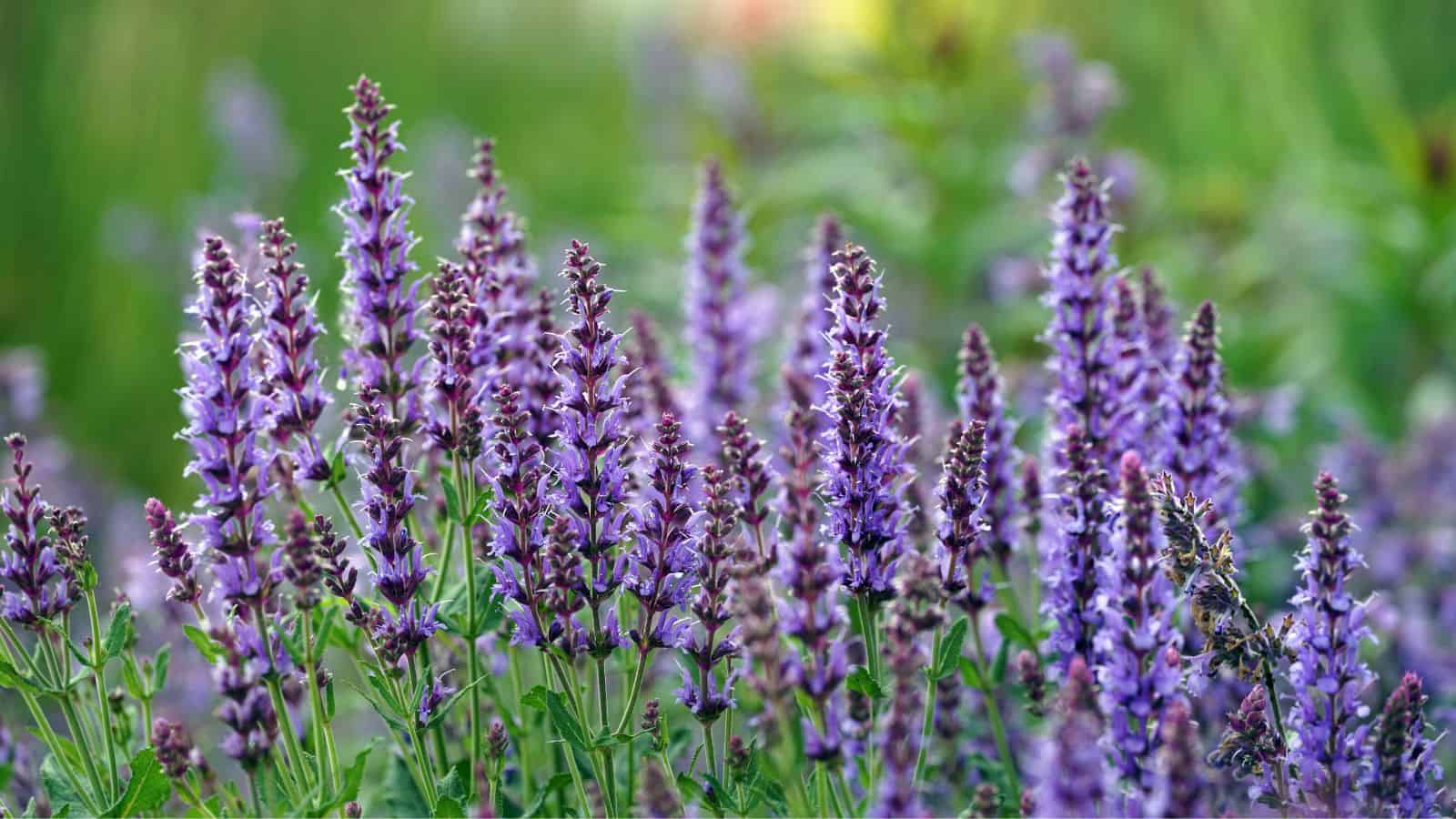
Believe it or not, catnip is a surprising star in the fight against mosquitoes, containing nepetalactone, which is more effective than many synthetic repellents. It’ll be a big hit with your cat, too, but mosquitoes won’t enjoy it in the slightest. So, for a dual-purpose plant, catnip is perfect near patios where it can entertain your cats and repel bugs.
Bee Balm
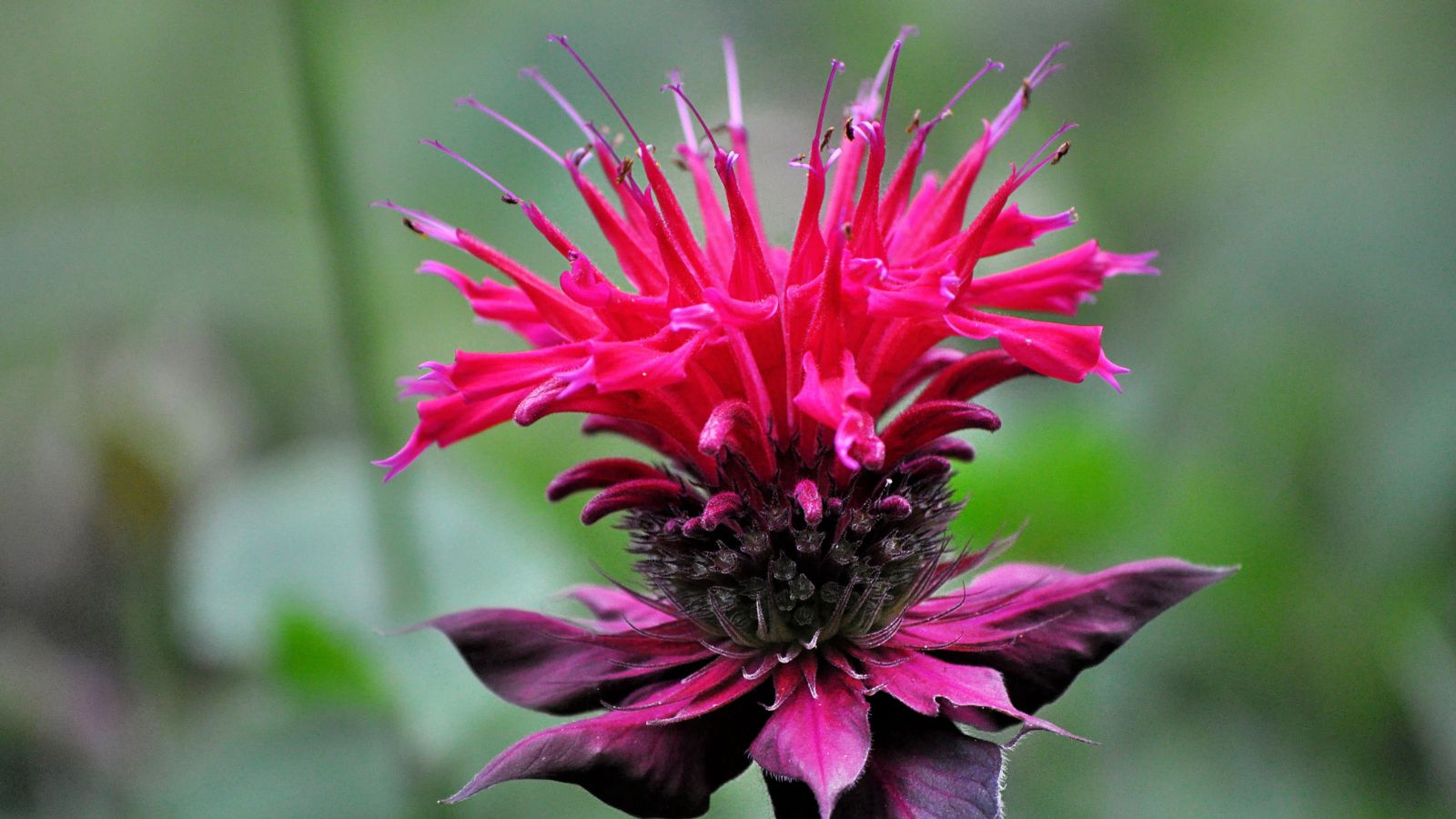
Bee balm offers a two-in-one bonus: it attracts pollinators like bees and butterflies while deterring mosquitoes with its citrusy scent. Don’t let you put this off–bees and butterflies will do wonders to help the rest of your flowers grow. Its vibrant blooms will also brighten up your garden wonderfully, so bee balm is a real win-win.
Rosemary
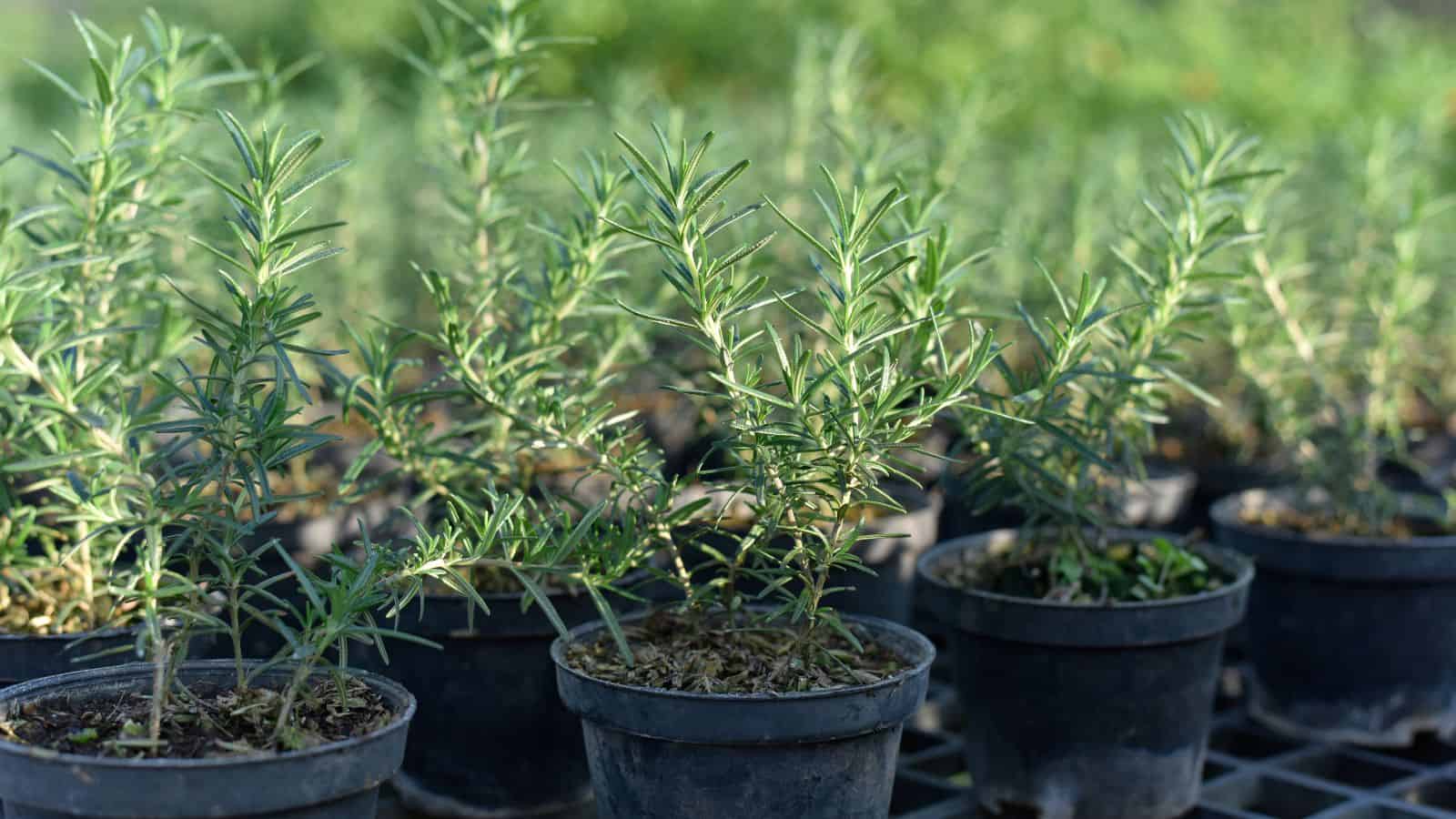
The sharp, woody aroma of rosemary is another excellent deterrent for mosquitoes, but it also keeps cabbage moths at a distance. Perfect for growing in containers, borders, or as a fragrant garden hedge, rosemary pulls double duty as a cooking herb and a natural insect repellent. In fact, it’s triple duty, because it looks lovely too!
Lemon Balm
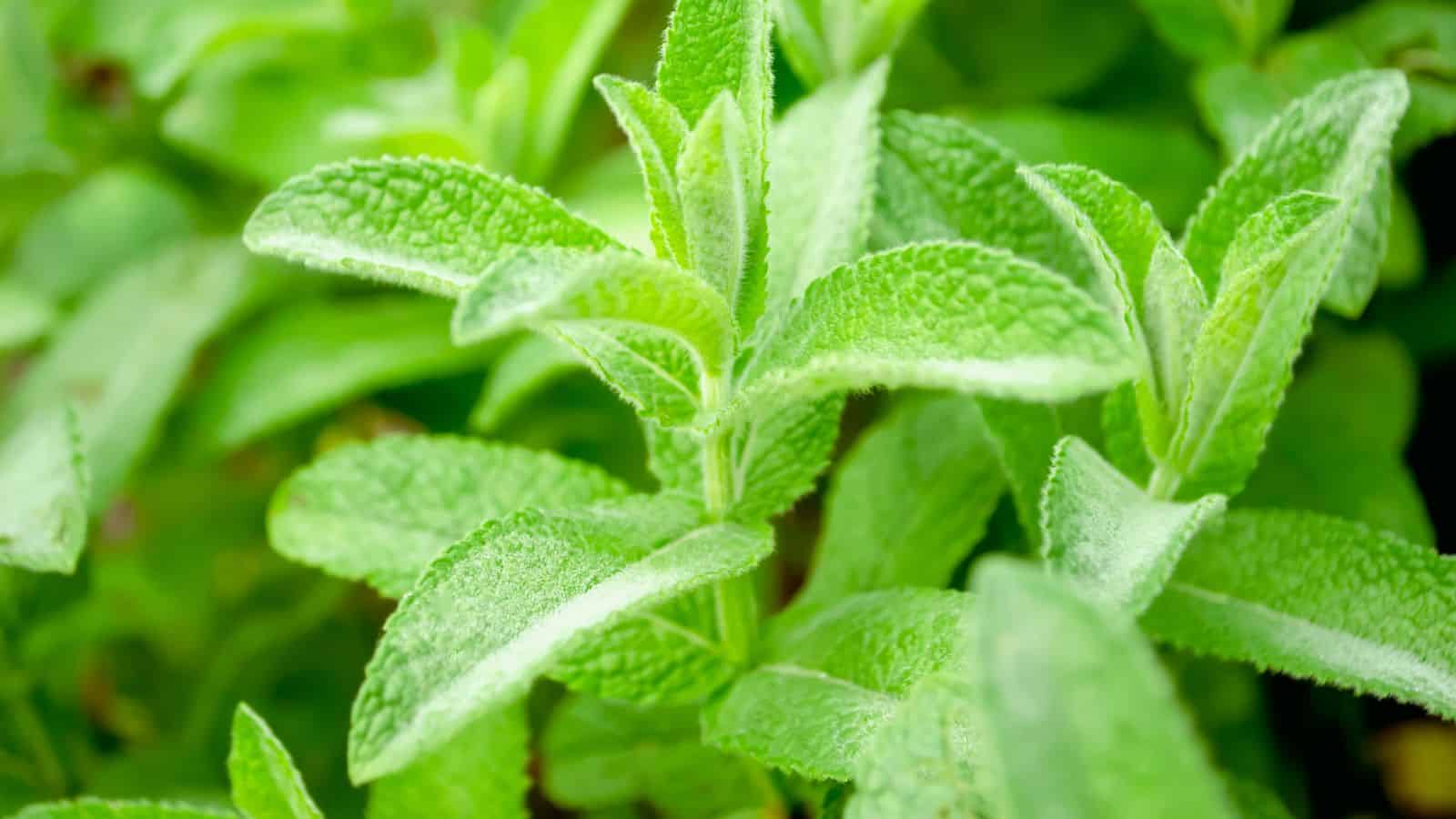
To complement your citronella, consider planting some lemon balm in your yard, another flower with a strong citrus scent that will no doubt ward off mosquitoes. If you’re not convinced, it’s also known for its easy-going nature, meaning that it grows well in both beds and containers. Its leaves can then be crushed to release even more aroma, so they’re really quite useful.
Basil
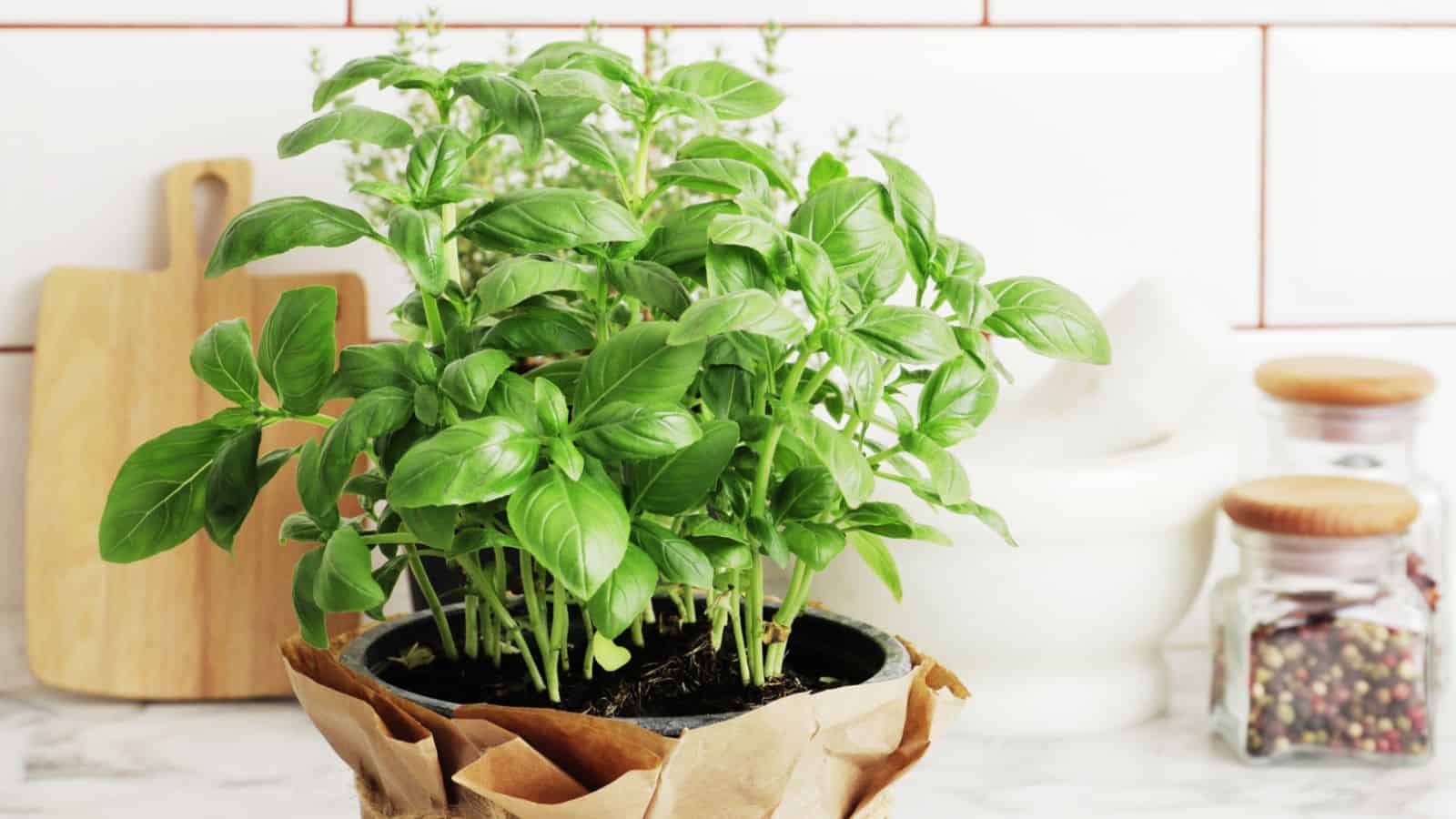
Contrary to popular belief, basil isn’t just for the kitchen—it’s a mosquito deterrent as well. The strong aroma, especially from varieties like lemon or cinnamon basil, will have no trouble keeping mosquitoes at bay. Plant it in containers near doors or seating areas, and you’ll be sorted when it comes to accessing fresh herbs and a mosquito-free space.
Fennel
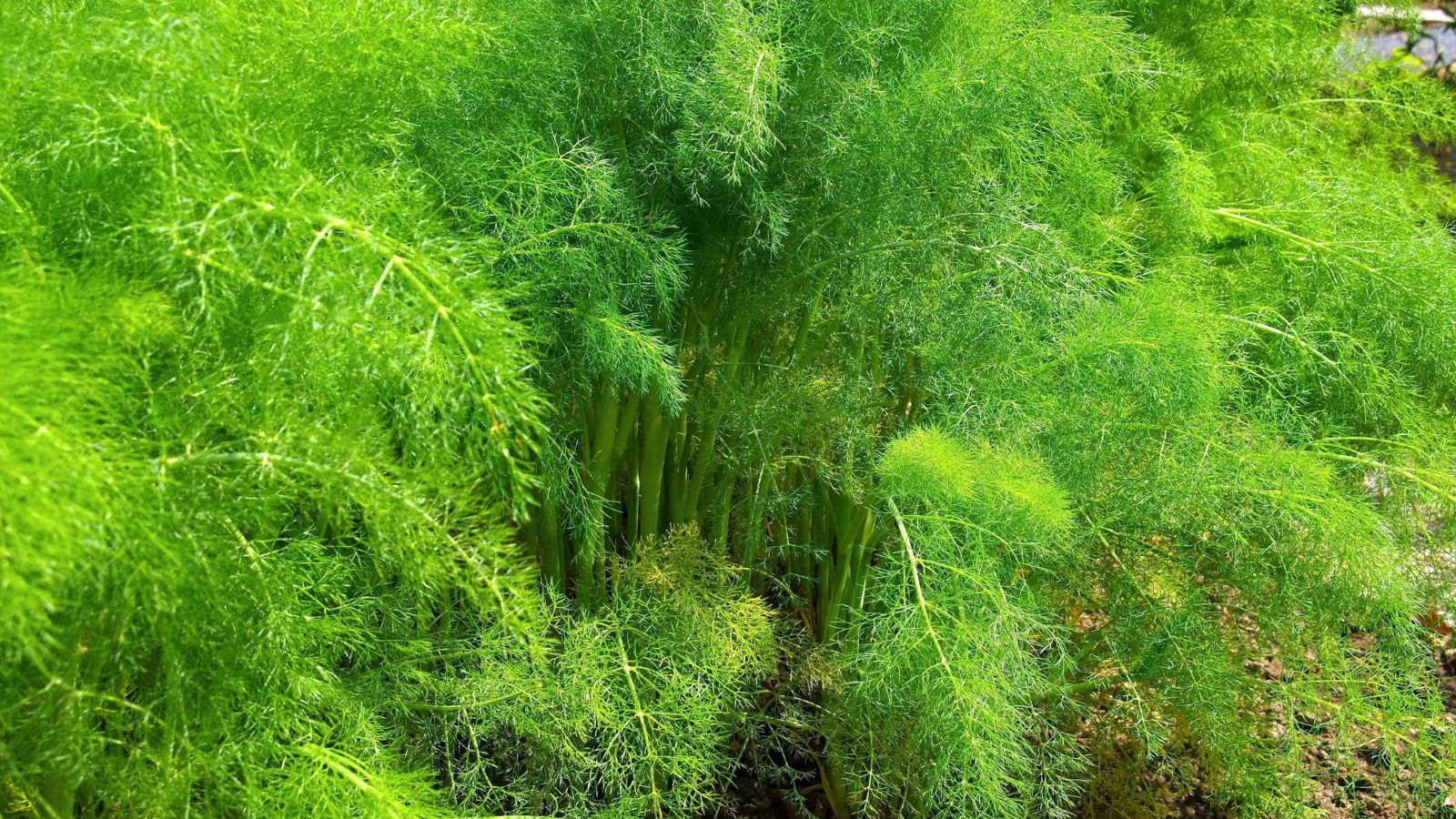
Fennel is surprisingly effective against garden pests like aphids and slugs, so it will work hard alongside a separate mosquito-deterrent to fend off bugs. Furthermore, it’s great for adding dimension to flowerbeds, thanks to its feathery foliage and yellow flowers that bring height and texture.
Mint
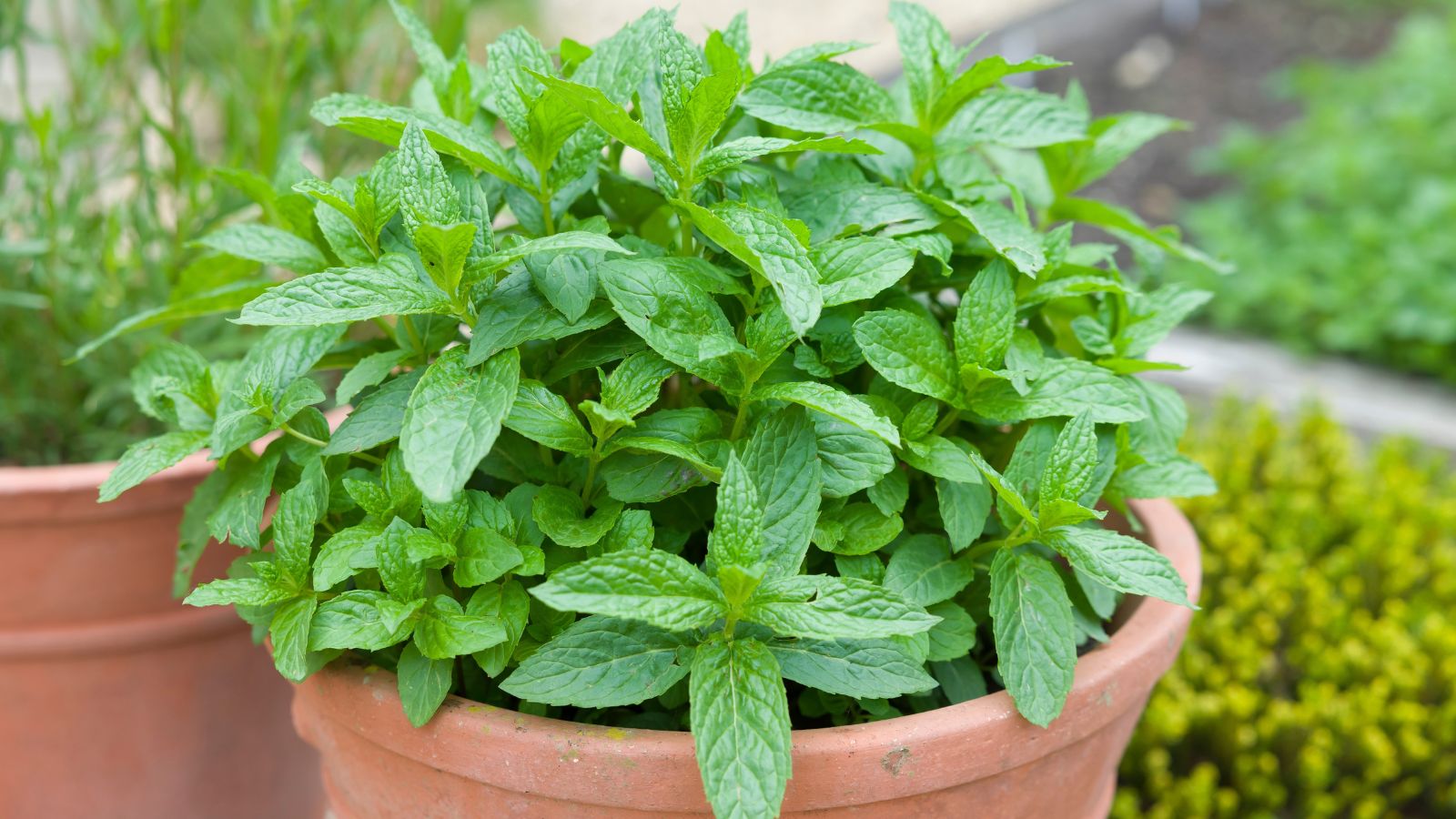
The strong aroma of mint might smell glorious to us, but it flies and mosquitoes hate it, making it a handy bug deterrent. Its leaves are ideal for crushing to release fragrance, creating a natural bug barrier that adds a fresh scent to patios and outdoor tables, and you can use it for cooking, too. Watch out, though–mint can spread quickly, so it’s best kept in containers.
Pennyroyal
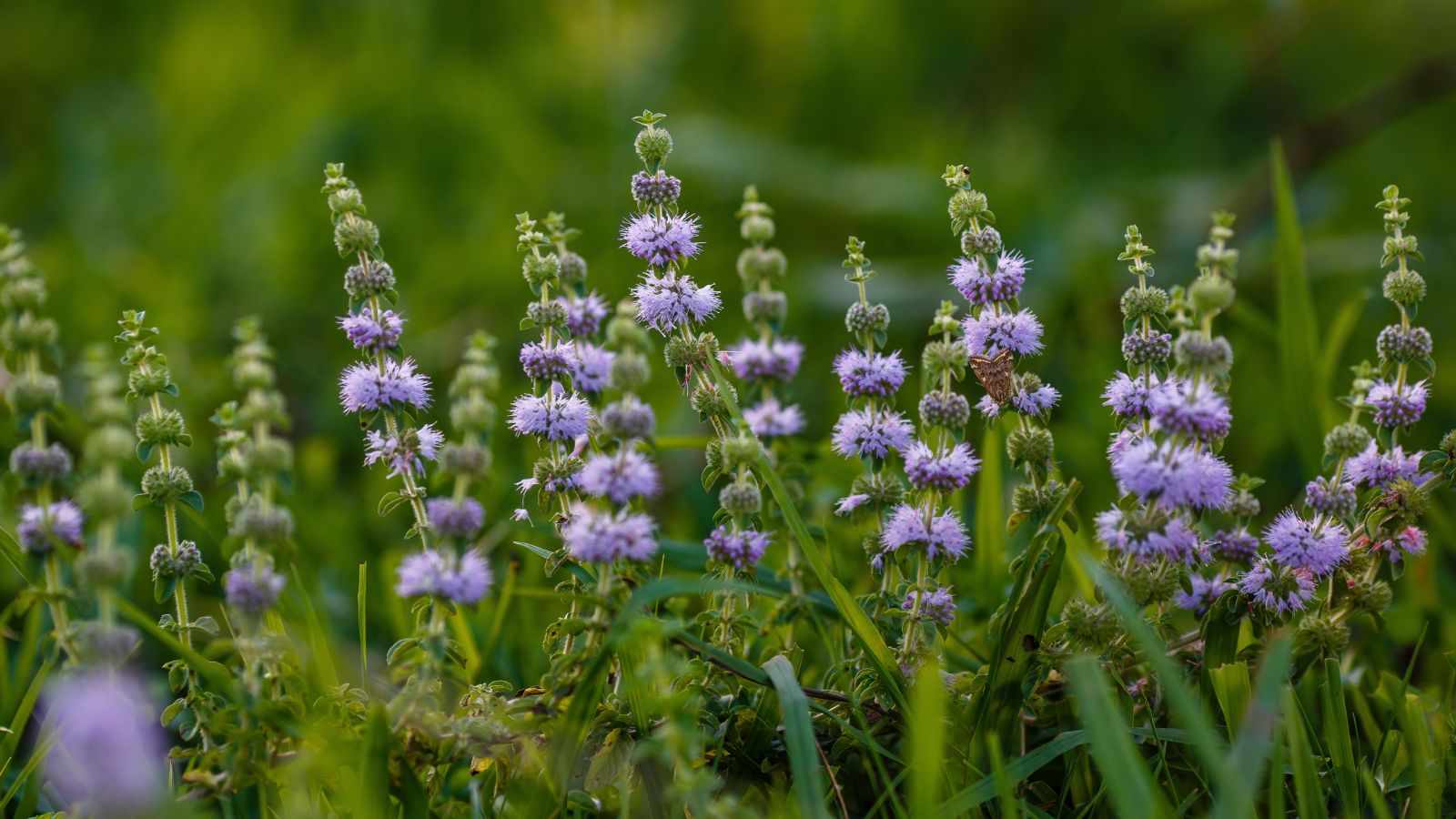
If your yard has a flea problem, look no further than Pennyroyal, which acts as both a flea and mosquito deterrent. This low-growing plant works well in borders and container gardens, where its bug-repelling properties can shine without taking over the garden. It does require caution, though, due to its toxicity to humans and pets if ingested or handled improperly.
Sage

Another flower that will keep away those pesky mosquitoes is sage. We have no idea why these pests don’t enjoy sage’s earthy aroma, but we certainly do! If you’re really struggling, sage can even be burned to enhance its repellent effect. One final bonus: it’s a delicious addition to the kitchen too.
Bay Leaves
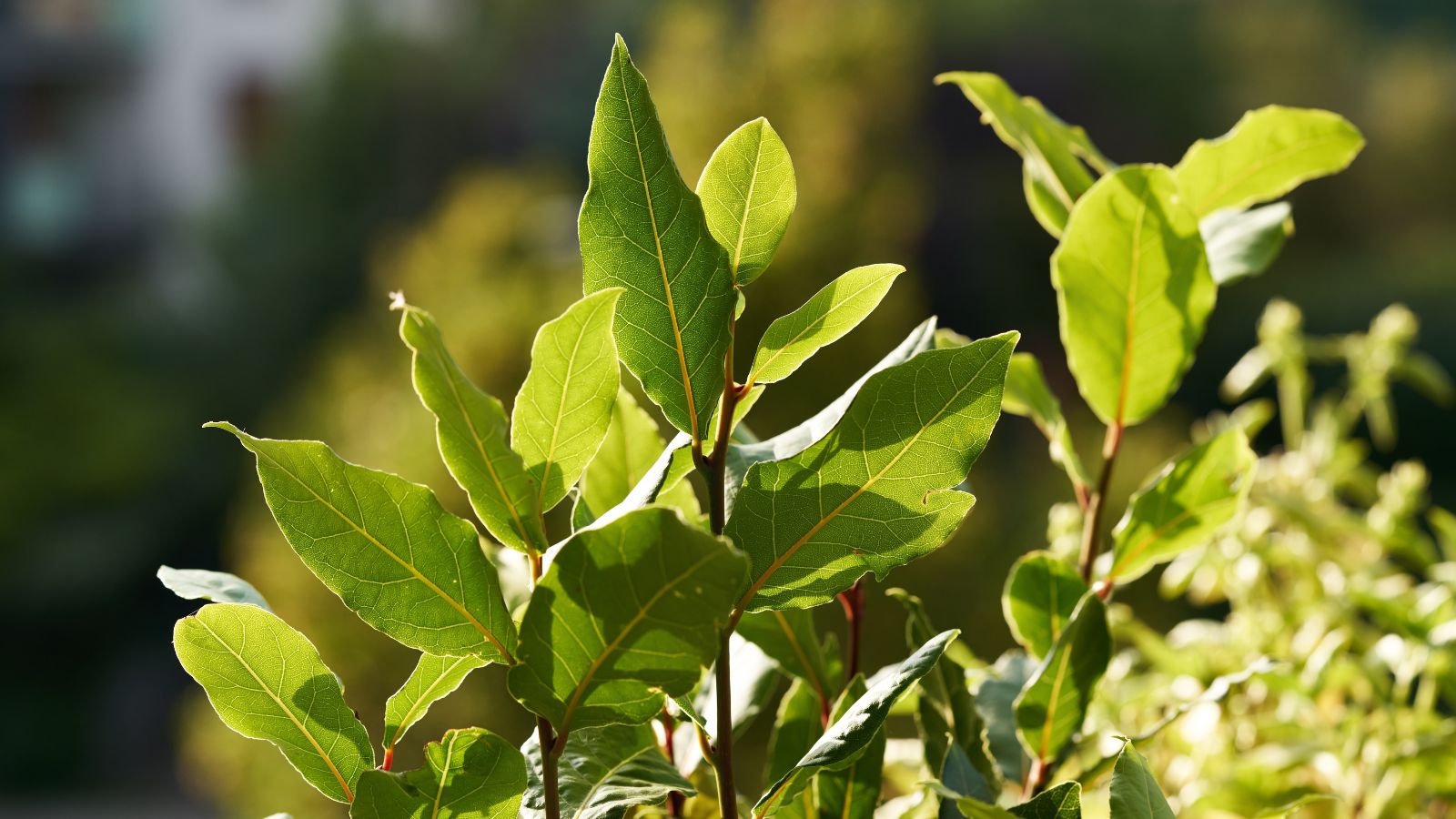
Just like basil and sage, bay leaves are tasty options to grow for your kitchen, but they double up as insect repellents. Flies, moths, earwigs, and roaches all hate this plant, but admittedly, mosquitoes aren’t too fussed. Either way, they bring a lot of functionality as well as beauty to gardens, so place them near windows or outdoor tables, and you won’t be disappointed.
Tansy
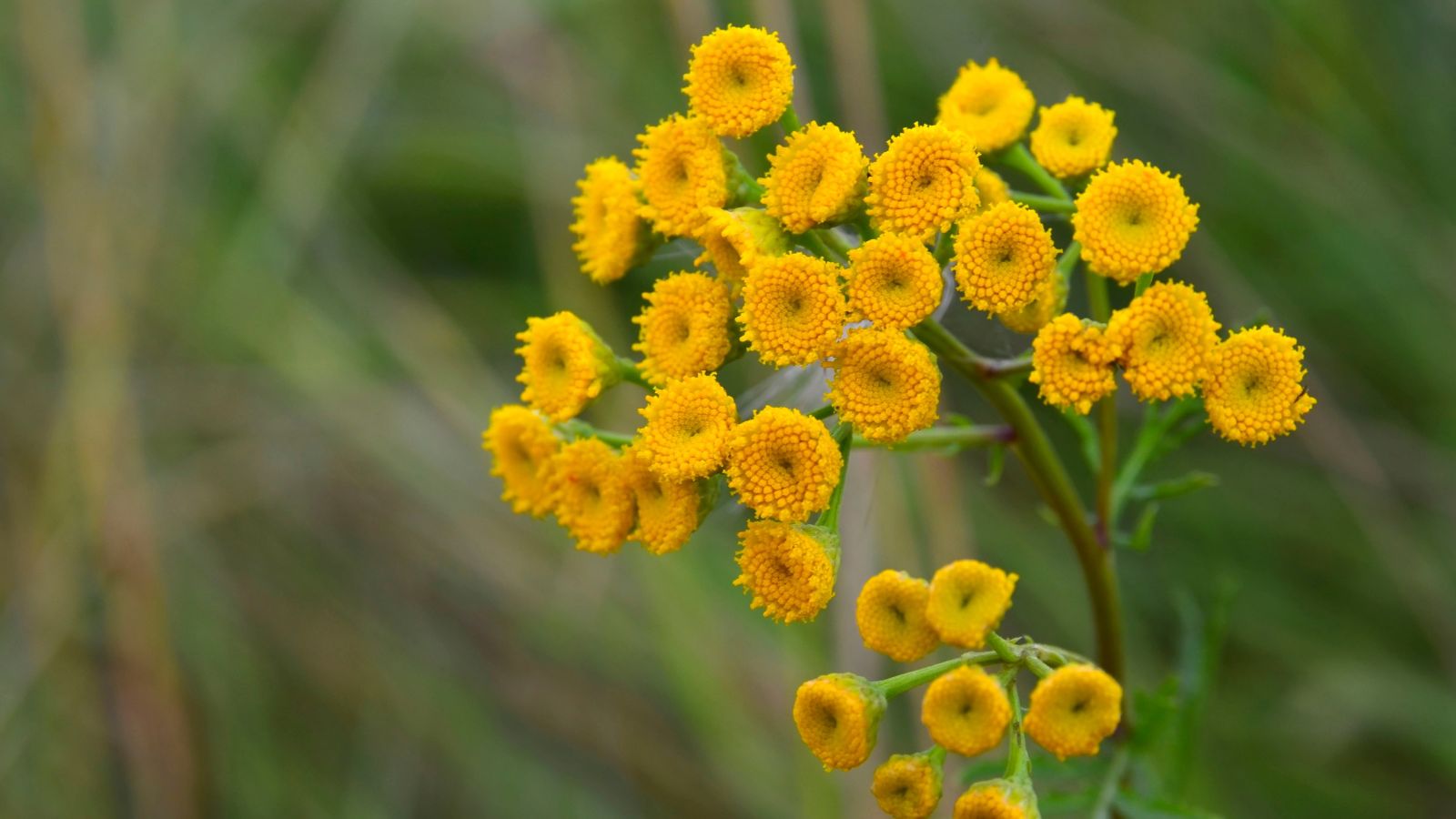
Tansy’s fern-like leaves and yellow flowers make it a cheerful garden addition that repels ants, fleas, and some other insects, which can be seriously useful. However, it’s important to remember that this plant can become invasive if left unchecked, and it’s also toxic if ingested, so plant it carefully and keep an eye on its spread.
Ageratum
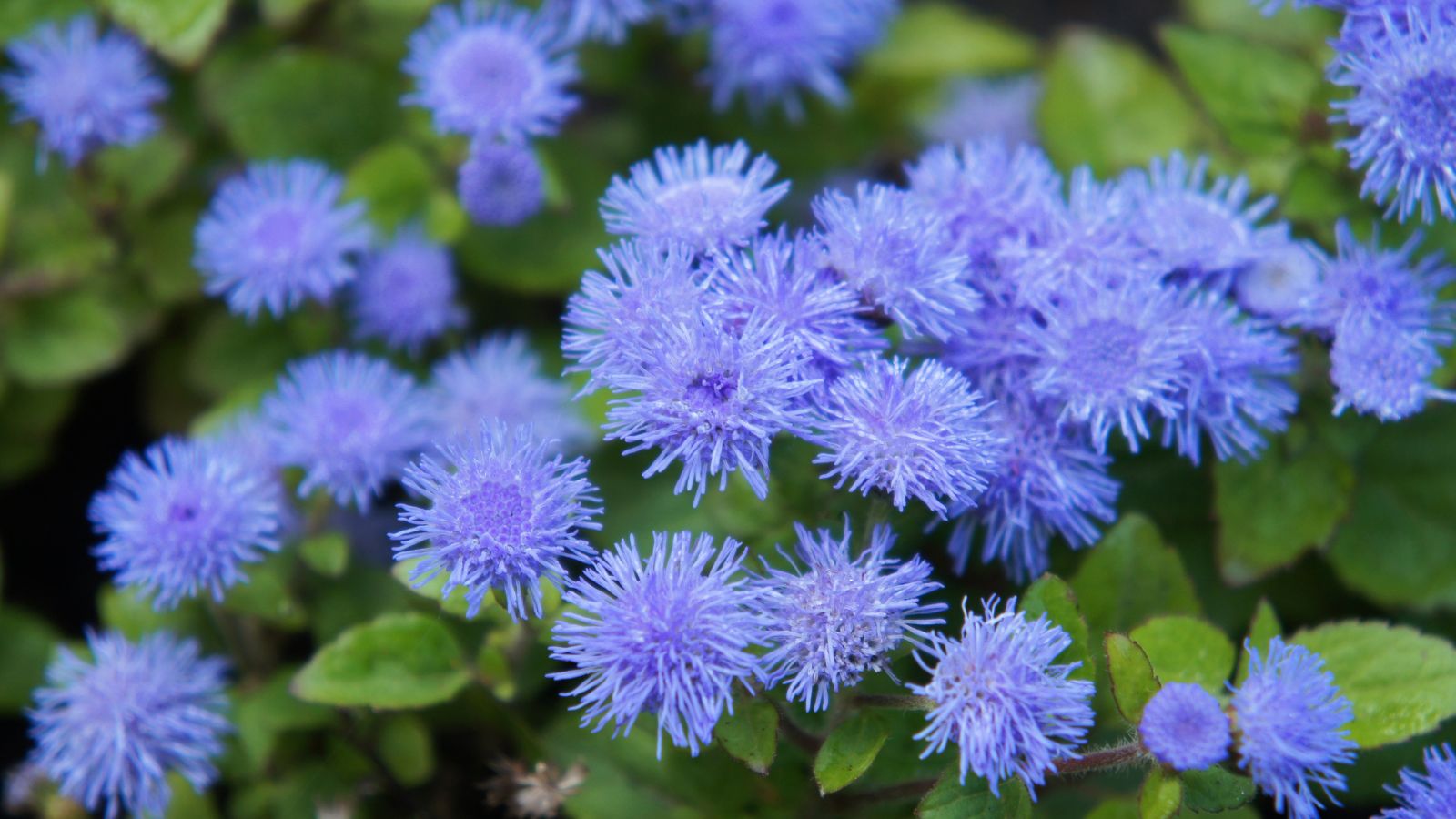
Last but not least is the ageratum, or floss flower, which has soft, colorful blooms that naturally repel mosquitoes. With shades of blue, pink, and white, it’s a pretty addition to garden borders or flower beds. Best of all, its unique scent acts as a quiet deterrent, giving you a burst of color and a natural mosquito barrier all at once.
